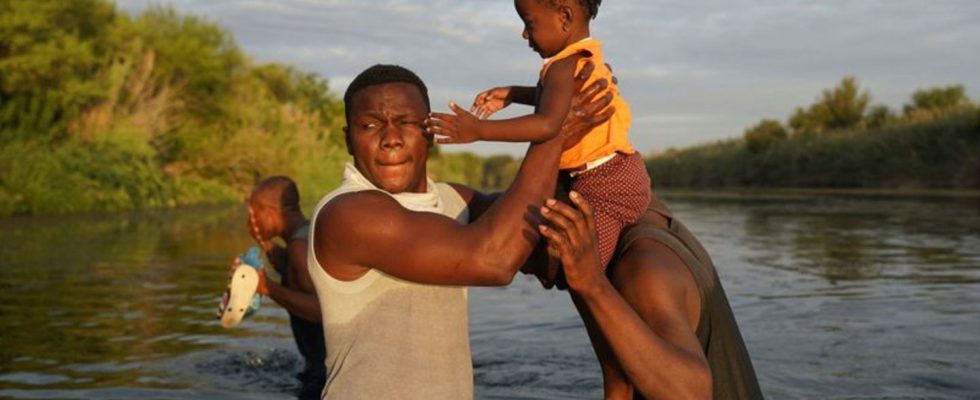Boundaries
US court stops controversial migration law in Texas
Fleeing poverty and conflict in their home countries, thousands of people come to the USA every day – including across the Rio Grande border river from Mexico. photo
© Fernando Llano/AP/dpa
Green light from the US Supreme Court: Texas police officers are given powers at the border with Mexico that are otherwise reserved for federal authorities. Nevertheless, the law is on hold.
A decision by the US Supreme Court fuels the debate about migration policy USA continues. Yesterday, the Supreme Court granted the temporary entry into force of a controversial law that gives Texas authorities broad powers on the border with Mexico. This emerges from a court document that was published by the US broadcaster CNN, among others.
The Republican Governor of Texas, Greg Abbott, signed the law in December. After a lengthy legal tug-of-war, the US Department of Justice finally argued before the Supreme Court that the southern US state was exceeding its authority with the project and obtained a delay.
US appeals court stops project
With the decision, the law was now allowed to come into force while ongoing lawsuits from the Ministry of Justice and several human and civil rights organizations have to make their way through the legal authorities.
According to media reports, a US appeals court has initially put the controversial Texas immigration law on hold. According to US media, it is still unclear whether there have been any arrests in the meantime.
This morning, the appeals court will hear an application from Texas to allow the law to come into force again for the time being, US media reported.
Criticism: “Racial profiling” possible
The law specifically criminalizes irregular migration to the USA at the Texas state level. It allows Texas law enforcement officers to arrest people suspected of illegally crossing the border from Mexico into the United States.
Texas courts can also order deportations and impose long prison sentences for repeated border crossings. These powers are actually reserved for US federal agencies. In this context, human rights and civil rights activists warn against discrimination and “racial profiling”. This is when people are checked by the police because of their appearance or ethnic characteristics.
Neighboring Mexico categorically rejected any measure that would give U.S. state or city authorities authority over migration issues. “Mexico will not accept deportations through the state of Texas under any circumstances,” the State Department said in a statement.
The issue of migration plays a particularly important role in the US presidential election campaign – Republicans accuse US President Joe Biden of having lost control over the protection of the US southern border. Challenger Donald Trump repeatedly uses extreme formulations and speaks, for example, of an “invasion” by the USA.
Thousands of people come to the United States every day to escape poverty and conflict in their home countries. Authorities are under pressure and the justice system can hardly keep up with processing asylum applications. There is also a lack of accommodation and other resources for the newcomers.

